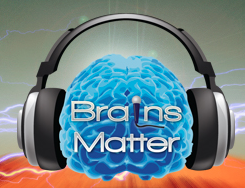That was good!" "Do it again."
This is what the brain says when people use tobacco, as well as ‘hard drugs’ such as heroin. New research published in the February 13 issue of The Journal of Neuroscience indicates that the effects of nicotine and opiates on the brain's reward system are equally strong in a key pleasure-sensing areas of the brain – the nucleus accumbens.
"Testing rat brain tissue, we found remarkable overlap between the effects of nicotine and opiates on dopamine signaling within the brain’s reward centers," says Daniel McGehee, Associate Professor in Anesthesia & Critical Care at the University of Chicago Medical Center.
McGehee and colleagues are exploring the control of dopamine, a key neurotransmitter in reward and addiction. Dopamine is released in areas such as the nucleus accumbens by naturally rewarding experiences such as food, sex, some drugs, and the neutral stimuli or ‘cues’ that become associated with them.
Nicotine and opiates are very different drugs, but the endpoint, with respect to the control of dopamine signaling, is almost identical. “There is a specific part of the nucleus accumbens where opiates have been shown to affect behavior, and when we tested nicotine in that area, the effects on dopamine are almost identical,” says McGehee.
This research is important to scientists because it demonstrates overlap in the way the two drugs work, complementing previous studies that showed overlapping effects on physiology of the ventral tegmenal area, another key part of the brain’s reward circuitry. The hope is that this study will help identify new methods for treating addiction – and not just for one drug type.
"It also demonstrates the seriousness of tobacco addiction, equating its grip on the individual to that of heroin. It reinforces the fact that these addictions are very physiological in nature and that breaking away from the habit is certainly more than just mind over matter," says McGehee.
This work is supported by grants from the National Institutes of Health, T32GM07839 and F31DA023340 to JPB, DA015918 and DA019695 to DSM.
Jonathan P. Britt and Daniel S. McGehee, "Presynaptic Opioid and Nicotinic Receptor Modulation of Dopamine Overflow in the Nucleus Accumbens,"The Journal of Neuroscience, February 13, 2008 • 28(7):1672–1681










